Poet Hannah Mettner considers two international books aimed at inspiring a love of poetry in young readers.
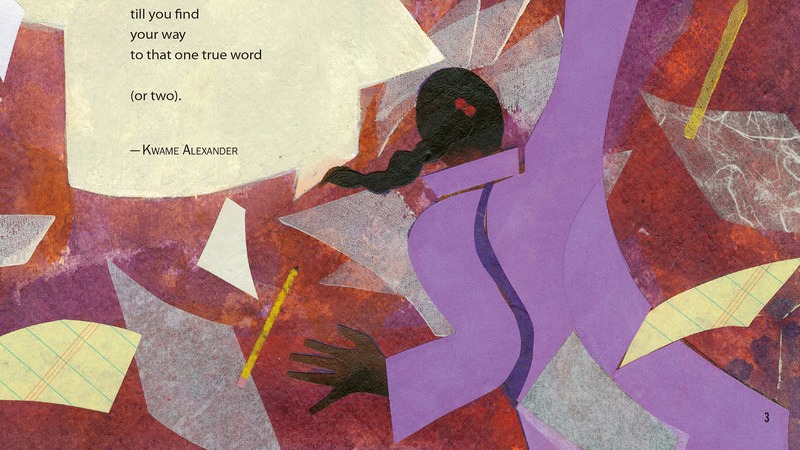
Like many other New Zealanders of my generation, I grew up with a hard-cover copy of Poems to Read to Young New Zealanders. Full of poems by Baxter, Mahy, Glover, Hunt and others, and supplemented with distinctive illustrations in collage and watercolour by Clare Bowes, this book stayed with me long after my parents tired of reading it to me every night. In fact, getting it out now brings back a flush of nostalgia, right down to the specific smell of this book, which carries with it the smell of the house I grew up in. The front cover is grooved deeply from being used as a drawing-board over the years, the middle section of pages has come loose, and there is an odd sticky section on the back.
All this is to say, though I hope it isn’t necessary: don’t under-estimate the effect of poetry on children. Poems are short, excellently catering to developing attention spans (and rushed bed-times), and powerfully evocative imagistic things, and it’s my experience that children often either ‘get’ a poem more easily than adults or are more comfortable with not ‘getting it’. That all said, if you don’t get them at the right time, and give them the right stuff, children can very quickly grow into the kind of belligerent adults who were given boring poetry by long-dead and dusted poets to write essays on at school.
This is the jumping off point for Kwame Alexander’s book Out of Wonder, which takes twenty poets and ‘celebrates’ their particular style by writing a poem, for children, in that style. I’m gonna go ahead and say right now that these poems don’t hold a candle to the best works of the poets they reference, but that isn’t the point. Rather than talk didactically about how to read a poem or how to write a poem, these poems incorporate their points on voice and style into the poem itself. It’s a great lesson on mimicry, and for young readers and writers, nothing is as important as reading something you like and copying it. More importantly, this book operates on the premise that poetry is awesome, and actively works to cultivate appreciation (or wonder) in its readers.
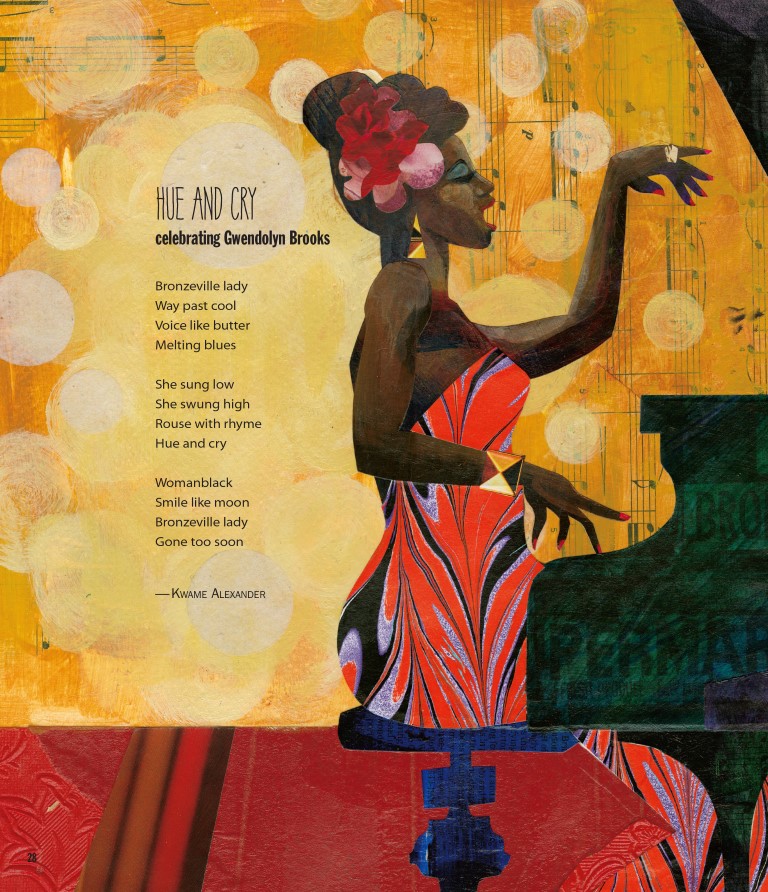
While Out of Wonder uses a kind of osmosis to take its reader into the world of poetry, Michael Rosen’s What is Poetry is aimed, I think, at older children and their teachers. It covers six main sections: ‘What is Poetry’ (which he turns into ‘What does poetry do?’ and is brilliant), ‘What can you do with a poem’, ‘My thoughts as I was writing some poems’, ‘Ways to start a poem’, ‘Writing poems’, and ‘Some technical points about poems’.
The first section is a fantastic introduction to how to read poetry: using examples Rosen talks about how ‘poetry can suggest things’, ‘poetry can capture a moment’ or ‘poetry can make familiar things feel unfamiliar or unfamiliar things feel familiar’ and other great things to think about when reading poetry. As with the rest of the book he uses clear language and a friendly tone to explain reasonably complicated ideas. Overall I think this is my favourite section of the book, with one glaring concession: I’m so un-thrilled about the poems he uses as examples. It’s a very English-curriculum-nineteenth-century-classics yawn-fest. Robert Louis Stevenson, Elizabeth Barrett Browning, Robert Browning, Edward Lear, Thomas Hardy, Shelley, Tennyson and a bit of Shakespeare. These are the poets he’s using to try to get young readers to relate to poetry?! C’mon, he’s writing this book in the time of Carol Ann Duffy, Simon Armitage, Emily Berry, Kei Miller, Alice Oswald, Sam Riviere and Sarah Howe! There are so many more relatable, accessible options! But whether it’s because this book is catering to what is taught in British schools, or just because that’s what Rosen knows and likes, this book is all about the canon. And everything rhymes! I wish we didn’t teach children that poetry always rhymes!
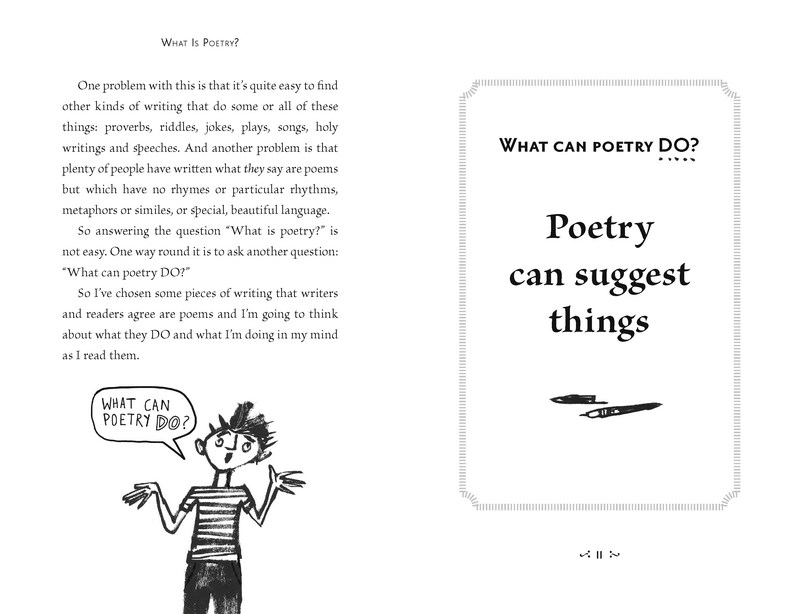
Out of Wonder does far better on the issue of representation. It’s America-based, rather than British, so it includes Emily Dickinson, Maya Angelou, Gwendolyn Brooks, Langston Hughes, William Carlos Williams and e.e. cummings. But it makes an effort to move from ancient poets like Bashō and Rumi, to living poets like Nikki Giovanni and Sandra Cisneros. It also includes voices from Chile, Uganda, Australia and Canada, making an obvious effort to be inclusive of a variety of nationalities, and including a much higher ratio of women to men than What is Poetry.
Both books are produced to a high standard. Out of Wonder is full of gorgeous paint/collage illustrations by Ekua Holmes which will often take up an entire double page spread and contain a single poem resting to one side. I think the images work really effectively with the text to bring alive the poems for a target audience of children aged 5-10. What is Poetry is designed to appeal to slightly older children, maybe 9-14, by cleverly using different fonts to bring out the sample poems. Jill Calder’s charming, scribbly images are dotted through the book to help break up the text, and range from simple pictures of books or pens at the end of a chapter, to larger and more detailed representations of scenes from the sample poems.
Both books are good in their way: I’d be more inclined to give Out of Wonder to students as example/inspiration for writing, and What is Poetry for students having to read and understand poetry in a classroom context for the first time. Paired with Paula Green’s A Treasury of NZ Poems for Children, this would be an awesome start to a school library poetry section or as working tools for a class studying on poetry.
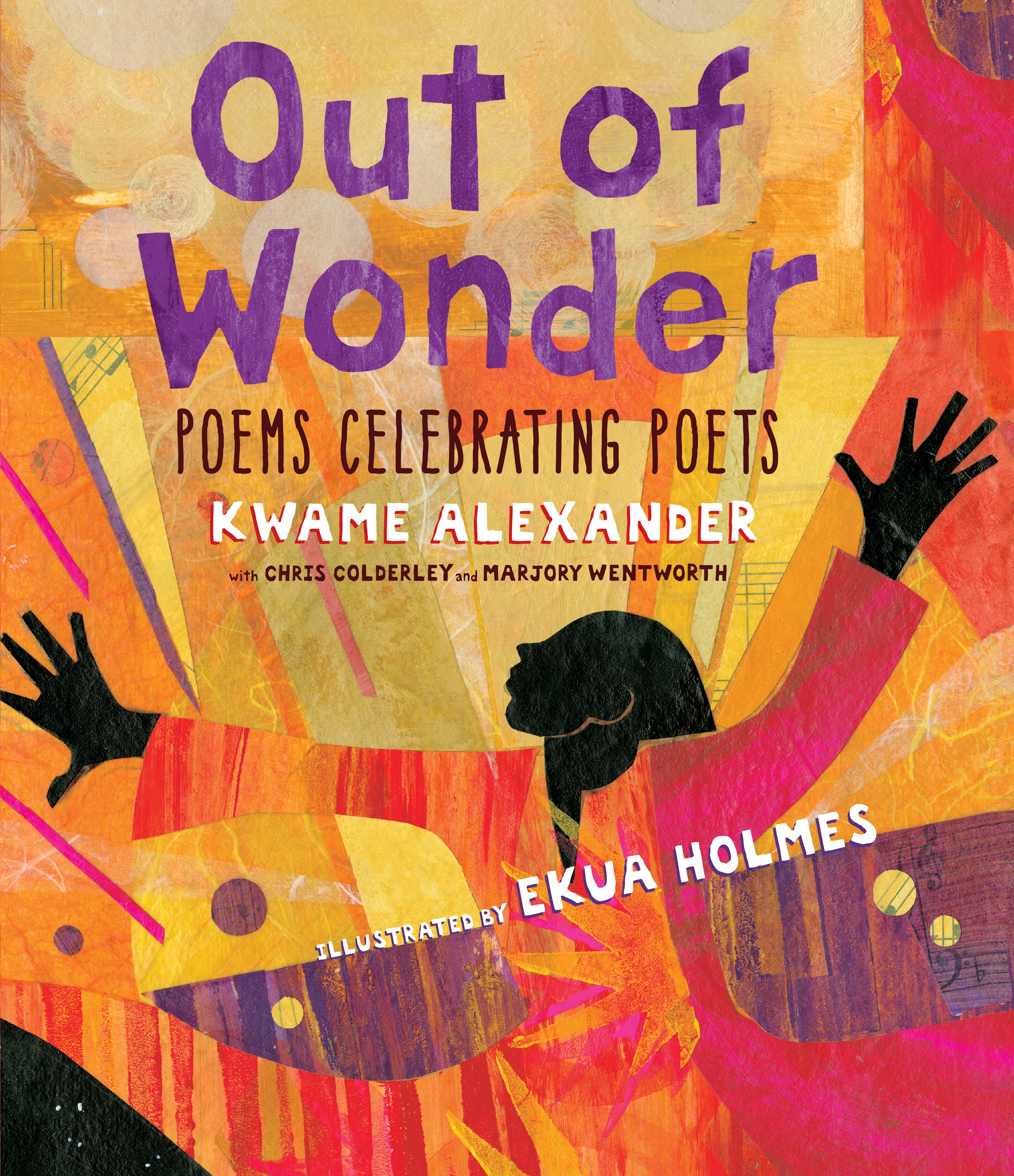
out of Wonder: Poems Celebrating Poets
By Kwame Alexander
Illustrated by Ekua Holmes
Published by Walker Books
RRP $27.99
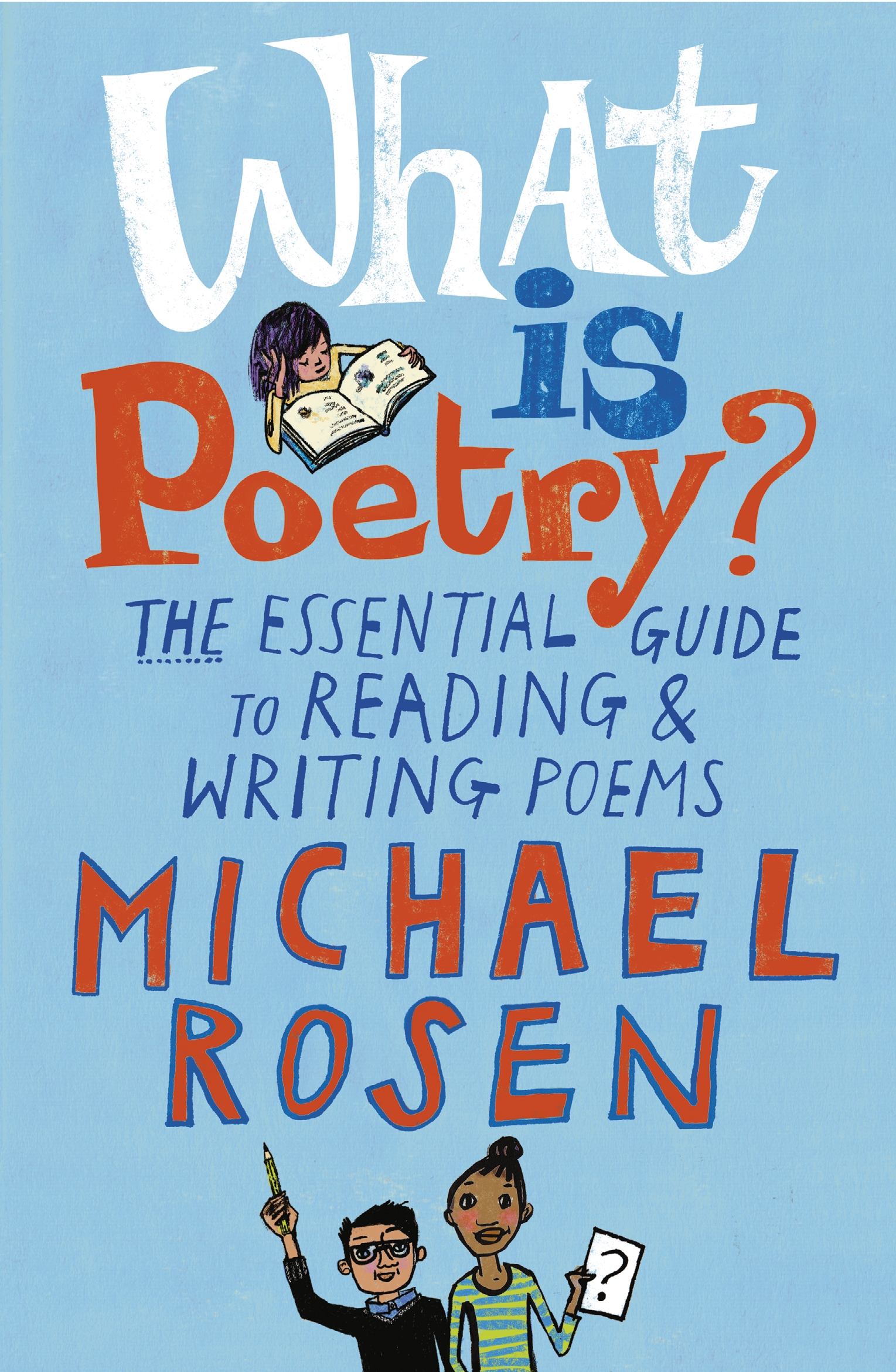

Hannah Mettner
Hannah Mettner is a Wellington writer originally from Gisborne. Her poetry has been published widely in NZ journals, and her debut collection Fully Clothed and So Forgetfulwas published earlier this year. With Sugar Magnolia Wilson and Morgan Bach, she edits Sweet Mammalian, an online poetry journal.



